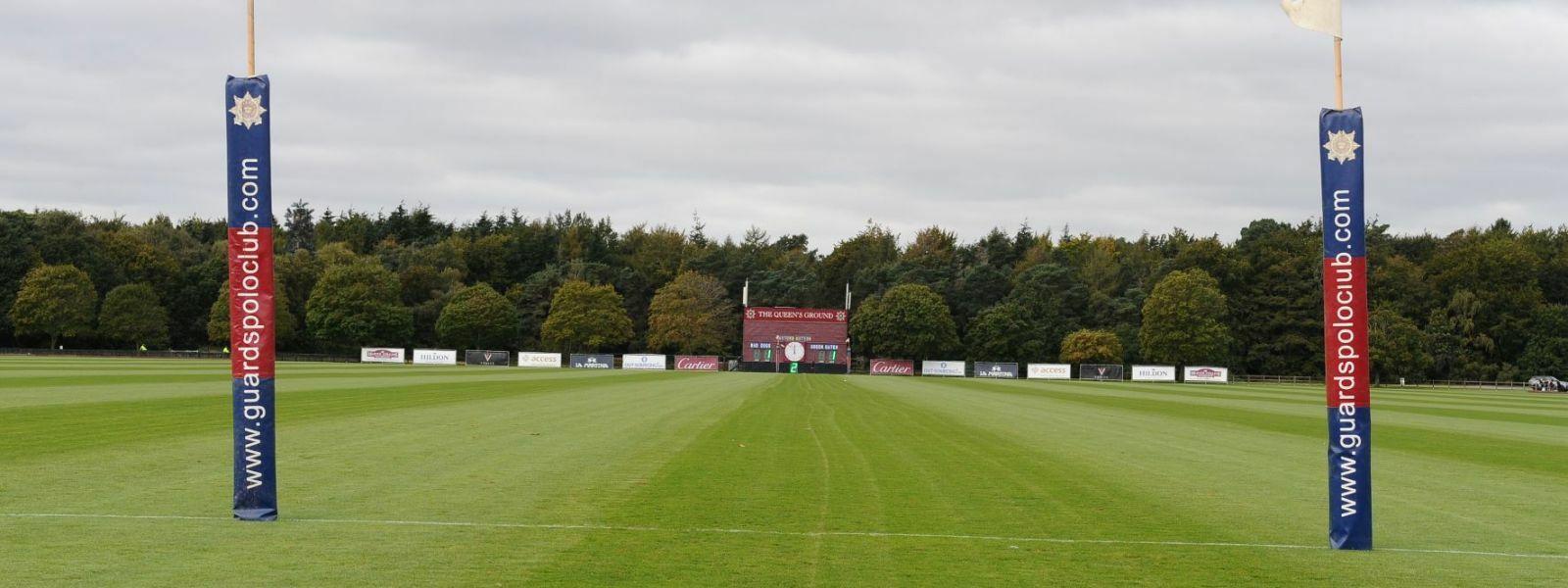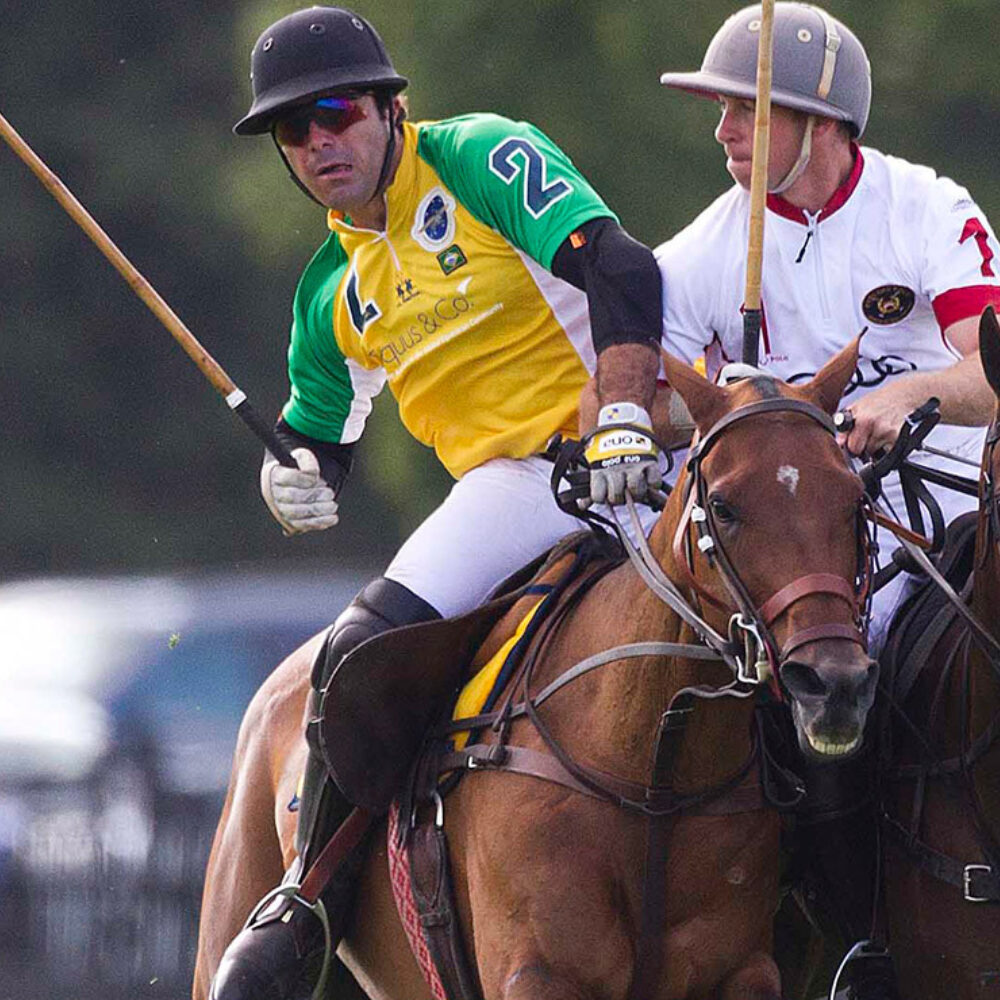Why are the polo grounds irrigated at Smith's Lawn?
Polo is played on horses at a fast pace. Guards Polo Club makes horse welfare its top priority and, similarly to horse racing, irrigates the playing fields to prevent horses from suffering injury during play. All water is drawn from non-drinking water sources and applied prior to playing to ensure a safe surface.
Where does the water that Guards Polo Club uses come from and why is the Club not subject to a hosepipe ban?
Guards Polo Club has an Environment Agency licence to take water from Virginia Water subject to daily, monthly and annual limits. The Environment Agency sets conditions upon which it can restrict the amount of water the Club can extract. These conditions are not the same as can be imposed on members of the public who use mains water and reservoir resources managed by the water companies. Levels in Virginia Water are constantly monitored to ensure compliance with the Environment Agency’s licence conditions.
Isn't this just a case of "one rule for me, another rule for them"?
Many would argue that the playing of sport is frivolous when others have restrictions imposed on them. However, like all sport played at a high level, many livelihoods depend on the game behind the scenes. In polo this extends to a significant number of grooms, horse transporters, farriers, hospitality workers, vets and many others that depend on the game being played to earn their livings. Due the source and availability of the water used at Guards Polo Club these livelihoods can be protected without impacting the availability of water for others.
What strategies does Guards Polo Club have in place in times of drought?
The use of water at Guards Polo Club does not have an adverse effect on the availability of mains water to others in the region. However, even though the Club is not subject to a hosepipe ban, we fully understand our responsibility to conserve as much water as possible in times of drought. Therefore, Guards Polo Club has a comprehensive drought action plan, which is implemented in stages according to changing necessity. This includes;
Only irrigating when grounds are due to be played.
Stopping irrigation of non-essential grass areas.
Regulating the amount of polo played during the hottest period of the year, scheduling fewer matches and tournaments in the hotter months thus reducing the requirement to irrigate.
Watering at the most viable times of the day – usually late evening or early morning when the temperature and evaporation is lower.
Reducing and, if necessary, ceasing the watering of polo grounds in a staged order of priority.
How often does Guards Polo Club water the grounds?
The grounds staff checks all 130 acres of grounds at Smith’s Lawn on a daily basis. Grounds are played on a rotational basis but are only watered if deemed necessary. The Club will schedule several games to be played on one ground on one day to minimise irrigation. However the Polo Manager and Club Vet must deem it safe for the horses to play.
Some grounds drain quicker than others. In severe weather, grounds can be selected to be played on due to their capacity to drain. In drought conditions, the slower draining grounds are played more often.
Guards Polo Club works closely with an agronomist, ensuring that it sows the best grass seed for polo, so providing playing fields that feature tough, drought-resistant strains that require less maintenance and irrigation.
How does water get recycled?
The polo grounds at Smith’s Lawn, including two grounds which have been reconstructed and newly seeded in 2022, have underground drainage systems which ensure that any excess water drains back into Obelisk Pond and Virginia Water. A natural filtration bed is currently under construction near Obelisk Pond which will ensure that all water flowing from the drainage system is returned to the watercourses as clean as possible. This environmentally friendly system ensures that Guards Polo Club can achieve maximum utilisation from minimum quantities of water.




